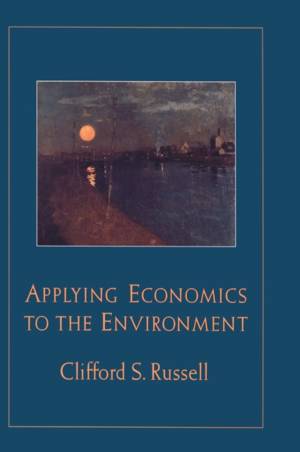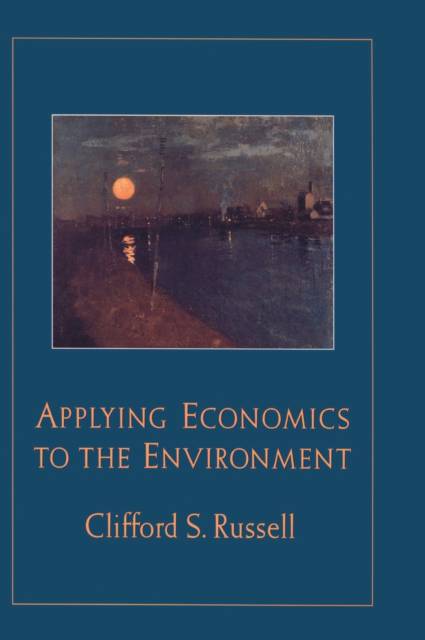
Je cadeautjes zeker op tijd in huis hebben voor de feestdagen? Kom langs in onze winkels en vind het perfecte geschenk!
- Afhalen na 1 uur in een winkel met voorraad
- Gratis thuislevering in België vanaf € 30
- Ruim aanbod met 7 miljoen producten
Je cadeautjes zeker op tijd in huis hebben voor de feestdagen? Kom langs in onze winkels en vind het perfecte geschenk!
- Afhalen na 1 uur in een winkel met voorraad
- Gratis thuislevering in België vanaf € 30
- Ruim aanbod met 7 miljoen producten
Zoeken
Applying Economics to the Environment
Clifford S. (Professor of Economics, and Director, Vanderbilt In
Hardcover
€ 297,45
+ 594 punten
Omschrijving
Looking at the implications of environmental factors for economic policy-making, this book contains chapters on damage and benefit analysis, monitoring and enforcement of environmental regulation, and the problems of developing countries. It also includes a review of relevant microeconomic theory, regional cost benefit analysis and more.
Specificaties
Betrokkenen
- Auteur(s):
- Uitgeverij:
Inhoud
- Aantal bladzijden:
- 400
Eigenschappen
- Productcode (EAN):
- 9780195126846
- Verschijningsdatum:
- 3/05/2001
- Uitvoering:
- Hardcover
- Afmetingen:
- 231 mm x 165 mm
- Gewicht:
- 760 g

Alleen bij Standaard Boekhandel
+ 594 punten op je klantenkaart van Standaard Boekhandel
Beoordelingen
We publiceren alleen reviews die voldoen aan de voorwaarden voor reviews. Bekijk onze voorwaarden voor reviews.









